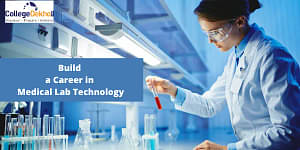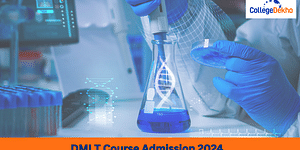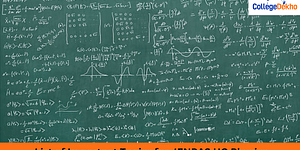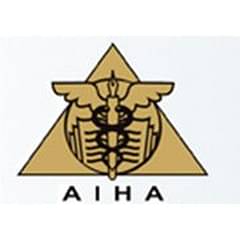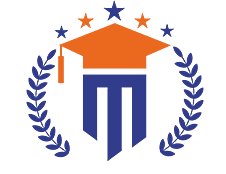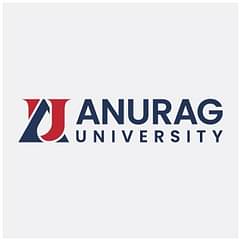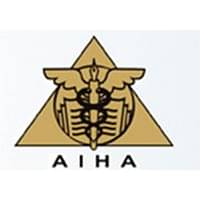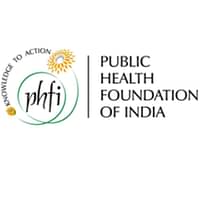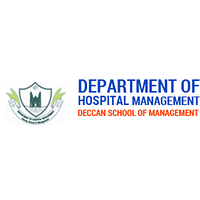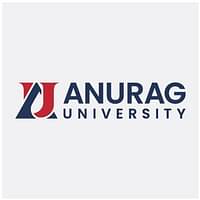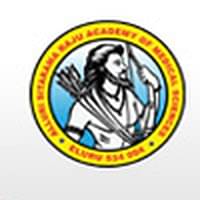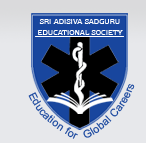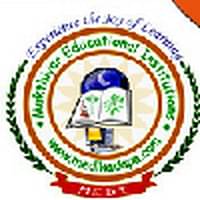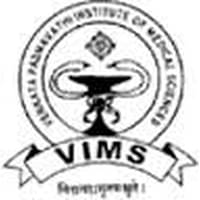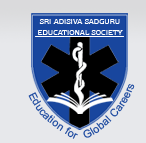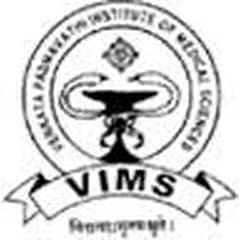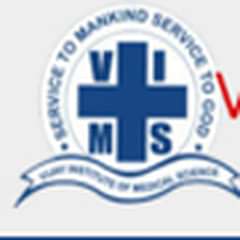Apollo College of Physiotherapy (ACP), Hyderabad Fees Structure & Courses List 2024-25
- 1 ReviewsHyderabad (Andhra Pradesh)
- Private
Apollo College of Physiotherapy Courses 2023
Apollo College of Physiotherapy course comprise an undergraduate course on physiotherapy. The Bachelor’s in Physiotherapy course offered at Apollo College of Physiotherapy focuses to provide the requisite knowledge and skills to make them competent in Physiotherapy techniques. The Apollo College of Physiotherapy course duration is four years along with a six-month internship programme at the end of the final academic year. To appear in the final semester exam, candidates must clear the preceding semester exams without any backlogs. Students are taught a total of 40 subjects in 3,200 hours. Along with this, students have six clinical for a total of 1,220 hours. Candidates must pass classes 10th and 12th with a specific percentage as decided by the college as the Apollo College of Physiotherapy eligibility criteria. Apollo College of Physiotherapy Hyderabad fee structure is set by the college. It is updated every academic year. Candidates must look at the updated Apollo College of Physiotherapy Hyderabad fee structure 2023 for admission in 2023 session. Cited below is Apollo College of Physiotherapy course syllabus:
| Courses | Hours | Subjects | |
| Elementary General Health Psychology and Elementary Sociology | General Psychology | 90 Hours | Definition of Psychology |
| Heredity and environment | |||
| Development and growth behaviour | |||
| Intelligence, motivation and emotion | |||
| Personality, learning, thinking and frustration | |||
| Sensation, attention, and perception | |||
| Attitudes | |||
| Defence mechanisms of the ego Health psychology | |||
| Psychological reaction of a patient | |||
| Reaction to loss | |||
| Stress, communication and compliance | |||
| Emotional needs | |||
| Geriatric psychology | |||
| Pediatric psychology | |||
| Behaviour modification | |||
| Substance abuse | |||
| Personality style | |||
| Sociology | 75 Hours | Introduction | |
| Social security | |||
| Sociology and health | |||
| Socialization | |||
| Social groups, family, community and culture | |||
| Cast system, social change, social control | |||
| Social problems of the disabled | |||
| Social worker | |||
| Merits and Demerits of the Social legilation | |||
| English | 100 Hours | Prose –Contemporary English | |
| Poetry : Magic of the muse | |||
| Grammer | |||
| Anatomy | 215 Hours | Introduction | |
| Cell and tissues | |||
| Cardiovascular system | |||
| Lymphatic system | |||
| Respiratory system | |||
| Digestive system | |||
| Genitourinary system | |||
| Nervous system | |||
| Endocrine system | |||
| Introduction to bones (Osteology) | |||
| Introduction to joints (syndesmology/arthrology) | |||
| Introduction to muscles | |||
| Upper extremity | |||
| Lower extremity | |||
| Trunk-Thorax-Abdomen | |||
| Pelvis | |||
| Head and neck | |||
| Physiology | 150 hours | Cell introduction | |
| Skin | |||
| Blood | |||
| Circulation | |||
| Respiration | |||
| Digestion | |||
| Excretion | |||
| Endocrine system | |||
| Reproductive system | |||
| Nervous system | |||
| Special senses Muscle | |||
| Elements of Bio-chemist | 80 Hours | Nutrition | |
| Carbohydrates | |||
| Lipids | |||
| Proteins | |||
| vitamins | |||
| Enzymes | |||
| Trace Minerals | |||
| Muscle contraction | |||
| Connective Tissue | |||
| Cell Biology | |||
| Hormone Action | |||
| Acid-Base Balance, water and electrolytes | |||
| Clinical Bio chemistry | |||
| Physiotherapy Orientation and Introduction To Treatment | 50 Hours | Pattern of Health Care Delivery | |
| Components of Physiotherapy Profession | |||
| Role of Physiotherapy in Meeting health care needs in India | |||
| Physical Education | 75 hours | The course will teach the students the various Sports, Games & Physical Fitness | |
| The course will encourage the students in participation and to learn technique of various Indoor/ Outdoor sporting activitiy and maintenance of Physical fitness in his/her personal & professional carrier. | |||
| 50 hours | Introduction | ||
| General Principles of Management | |||
| Personnel Management | |||
| Planning and Organisation | |||
| Administration, Supervision and Ethics | Financial Issues | ||
| Hospital Management | |||
| Self Management | |||
| National Health Policy and Health care system in India | |||
| Organisation of Physiotherapy Department Ethics | |||
| History of Physiotherapy | |||
| Ethical Principles in Health Care | |||
| Ethical Principles related to Physiotherapy | |||
| Scope of Professional conduct | |||
| Rules of profession conduct | |||
| Confidentiality and responsibility | |||
| Malpractice and negligence | |||
| Provision of services and Advertising | |||
| Sale of Goods | |||
| Legal Aspects | |||
| Third Year Syllabus | |||
| Electrotherapy(Low & Medium Frequency ) | 200 Hours | Introductory Physics | |
| Electricity | |||
| Static Electricity | |||
| Current Electricity | |||
| Magnetism | |||
| Moving coil milliammeter | |||
| Voltmeter | |||
| Transformer | |||
| Chokes | |||
| Electric valves or thermionic valves | |||
| Metal valve rectifiers | |||
| Ionisation | |||
| Low – Frequency | |||
| Interrupted galvanic current | |||
| Effects of interrupted galvanic current on innervated and denervated muscles | |||
| Characteristics of stimulating current | |||
| Threshold of stimulation | |||
| Physiological effects of IG current, chemical and therapeutic effects | |||
| Electro diagnostic tests | |||
| Characteristics of normal and denervated muscle | |||
| Peripheral nerve lesions | |||
| Selection of current | |||
| Electrotherapy (High Frequency) | 150 Hours | Define electricity | |
| Magnetism | |||
| Define electromagnetic induction | |||
| Condensers | |||
| Valves | |||
| Rectifiers | |||
| Fuse and grid | |||
| Discuss the various devices used in regulating intensity of current. | |||
| Define oscillation | |||
| Radiant energy | |||
| Electro magnetic waves and its properties | |||
| Physiological and therapeutic effects of high frequency currents | |||
| Short Wave diathermy | |||
| Actinotherapy | |||
| Infrared radiation | |||
| Microwave diathermy | |||
| Paraffin wax and moist heat | |||
| Ultrasonic therapy | |||
| Cryotherapy | |||
| Interferential therapy | |||
| TENS | |||
| LASER | |||
| Ultra violet radiation | |||
| Clinical Orthopaedics | 125 Hours | Introduction to orthopaedics | |
| Principles of operative treatment | |||
| Sprains and muscle strains | |||
| Fractures and dislocations | |||
| Upper limb fractures and dislocations | |||
| Lower limb fractures and dislocation | |||
| Spinal fractures and dislocations | |||
| Recurrent dislocations | |||
| Amputations | |||
| Bone & joint infections | |||
| Bone joint tumors | |||
| Chronic arthritis | |||
| Low back ache painful arc syndrome , tendonitis facitis & spasmoidic torticollis | |||
| Spinal deformities | |||
| Poliomyelitis | |||
| Congenital deformities | |||
| Peripheral nerve injuries | |||
| Hand injuries | |||
| Leprosy | |||
| Basic knowledge of implants | |||
| Sports injuries and its management | |||
| Physiotherapy in Orthopaedic Conditions | 110 Hours | define fracture, review the types signs and symptoms | |
| describe the PT assessment of a patient with a fracture during the immobilization | |||
| list the aims of PT management in a patient with a fracture | |||
| Review manual mechanical, skin, skeletal, lumbar and cervical traction | |||
| Describe the methods of mobilization of a patient/extremity after healing of a fracture | |||
| review the mechanism of injury, clinical features, treatment and complications and describe the PT management and Home program | |||
| describe briefly the general and PT assessment of the vertebral column | |||
| review cervical and lumbar spondylosis, spondylolysthesis, TB spine and spinal fracture outline PT assessment and management | |||
| List the common postural abnormalities affecting the spine. | |||
| Review the clinical features and describe the PT management of Ankylosing spondylitis | |||
| Intervertebral Disc prolapse | |||
| Define the soft tissue injuries, review their etiology and clinical features and describe their treatment | |||
| Review upper and lower limb and spinal orthosis and prosthesis. | |||
| Review the indications and principles of amputations of the upper and lower limb describe PT management | |||
| Define poliomyelitis and review PT management | |||
| cerebral palsy, | |||
| Rheumoatiod Arthritis | |||
| Osteoarthrits | |||
| leprosy | |||
| different degrees of burns, PT assessment and management | |||
| Community Medicine | 150 Hours | Outline the natural history of diseases | |
| Outline the various measures of prevention and methods of intervention especially for diseases with disability | |||
| Outline the national care delivery system | |||
| Outline selected national health programmes | |||
| Define occupational health and list methods of prevention of occupational diseases | |||
| Outline of the employees state insurance scheme and its benefits | |||
| Describe the social security measures for protection from occupational hazards, accidents, diseases and workman’s compensation act | |||
| Outline the objectives and strategies of the national Family Welfare Programme | |||
| Define community based and institution based rehabilitation. Describe its advantage and disadvantages. | |||
| Describe the communicable diseases | |||
| Describe the Epidemiology of Rheumatic heart disease cancer, chronic degenerative disease and cerebrovascular accidents | |||
| Outline the influence of nutritional factors such as protein Energy Malnutrition, Anaemia, Vitamin deficiency and minerals on disability | |||
| Health education: Its principles, methods of communication, role in rehabilitative services | |||
| Define the role of community leaders and health professionals in health educationOutline the role of international health agencies in rehabilitation of the disabled. | |||
| 4th Year Syllabus | |||
| GY | 125 Hours | Neuroanatom | |
| Neurophysiology | |||
| Clinical features and management of | |||
| Congenital childhood disorders Cerebrovascular accidents Trauma Diseases of the spinal cord Demyelinating diseases (central and peripheral) Degenerative disorders Infections Diseases of muscle Peripheral nerve disorders Miscellaneous: epilepsy,myasthenia gravis, intra cranial tumours motor neuron diseases | |||
| Assessment | |||
| Physiotherapy in Neurological Conditions | 110 Hours | Review of neuroanatomy and physiology | |
| Principles of assessment | |||
| Principles of treatment | |||
| Cerebral palsy | |||
| Peripheral nerve lesions | |||
| Musclular dystrophy | |||
| Parkinsonism | |||
| Spinal cord lesions | |||
| Hemiplegia | |||
| Cerebellar lesions | |||
| Poliomyelitis | |||
| Yoga, Accupuncture and Accupressure | 50 Hours | The objective of the course is to enable the student to apply the therapeutic principles of Yoga, Acupuncture and Acupressure in the practice of Physiotherapy | |
| Clinical Cardio Respiratory | 125 Hours | Anatomy and physiology of cardio-respiratory system, | |
| The relationship of Bony thorax and lungs to each other and to the abdominal contents | |||
| Variations in bony cage- cervical ribs, rickets – rickety rosary ,Pigeon chest, funnel chest, scoliosis, kyphosis | |||
| Thoracic movements , | |||
| Muscles of respiration | |||
| Anatomy and physiology of heart | |||
| Physiological control of respiration | |||
| Blood pressure | |||
| Cough reflex | |||
| Mechanical factors in breathing | |||
| Ventilation, perfusion | |||
| Pulmonary function assessment | |||
| Cardio vascular stress testing | |||
| Basics of arhyhimias, sycope and its management | |||
| Fundamentals of ECG | |||
| Cardiac surgery:Closed heart surgery open heart surgery | |||
| Thoracic surgery | |||
| Fracture ribs | |||
| Neumothorax, haemothorax, | |||
| Haemopneumothorax | |||
| Emphyema: causes and treatment and describe briefly on Inter costal drainage Window operation, Rib resection, Decortication. | |||
| Suppurative lung lesions | |||
| tuberculosis | |||
| Carcinoma lung | |||
| Surgical incisions | |||
| Post-operative managements of patients with segmentectomy, Lobectomy, Bilobeotomy, Pneumonectomy, Pleuropneumonectomy & Tracheostomy | |||
| Ventilator principles and uses | |||
| Pre-operative assessment and management posted for thoracotomy | |||
| Management in thoracotomy | |||
| Postoperative procedures and Management of endotrocheal Endonasal tubes, tracheal suction, Weaning the patient from ventilator extubation & post extubation | |||
| Cardiopulmonary resuscitation: cardiac massage, artificial respiration, defribrillators and their uses | |||
| Physiotherapy in Cardio-respiratory Conditions | 110 Hours | Anatomy | |
| Physiology | |||
| General over view: assessment | |||
| General over view : Physical treatment | |||
| Physiotherapy in obstructive lung diseases | |||
| Physiotherapy in chest infections | |||
| Physiotherapy in restrictive lung disorders | |||
| Principles of intensive care physiotherapy | |||
| Physiotherapy after pulmonary surgery | |||
| Physiotherapy after cardiac surgery | |||
| Physiotherapy in general surgery | |||
| Physiotherapy in rehabilitation after myocardial infarction | |||
| Rehabilitation Medicine | 50 hours | Introduction | |
| Therapeutic techniques | |||
| Communication problems | |||
| Behavioural problems | |||
| Pain | |||
| Evaluation of physical dysfunction | |||
| Orthotic devices | |||
| Prosthetic devices | |||
| Mobility aids | |||
| Pre vocational evaluation | |||
| Architectural barriers | |||
| Disability evaluation | |||
| Legal aspects | |||
| Social implications | |||
| Community based rehabilitation module | |||
| geriatrics rehabilitation | |||
| Visits and Special Lectures | 100 Hours | Medical terminology | |
| Research methodology | |||
| Bio-Statistics | |||
| Radiology | |||
| Various diagnostics procedures | |||
| Field trips to rehabilitation Homes: Cerebral Palsy, Old age Homes | |||
| Project/Case Record | 70 Hours | Project duration: 6th semester to 8th semester Submitted project on “ Cervical Disc Syndrome” | |
| Compulsory Rotatory Internship Programme | 165 Hours | Department of orthopaedic surgery | |
| Paediatric orthopaedic | |||
| Geriatric orthopaedic | |||
| Replacement arthroplasty | |||
| Accident surgery and trauma care | |||
| Orthopaedic out patient epartment | |||
| Physical medicine and rehabilitation in patient department | |||
| Weekly care presentation / discussion | |||
| Clinical physiotherapy seminars | |||
| Doctors lectures | |||
| Neuro Rehabilitation | 165 Hours | Department of Neuro medicine | |
| Department of Neurosurgery | |||
| NICU | |||
| Neurology out patient | |||
| Stroke | |||
| Geriatric rehabilitation | |||
| Weekly case presentation / discussion | |||
| Clinical /PT seminars | |||
| Doctors Lectures | |||
| Cardiothoracic Rehabilitation | 165 Hours | Department of Cardiac Medicine | |
| Department of cardiac Surgery | |||
| ICU, ICCU | |||
| Cardiology out Patient Department | |||
| Department of thoracic surgery | |||
| IRCU | |||
| Pulmonology out patient department | |||
| Patient education in cardiac rehabilitation | |||
| Weekly case presentation / discussion | |||
| Clinical /PT seminars | |||
| Doctors lectures | |||
| Plastic Surgery, Hand Rehabilitation, Burns, etc., | 165 Hours | Department of general surgery | |
| Department of Plastic surgery and burns | |||
| Out Patient department | |||
| Burns rehabilitation | |||
| Weekly case presentation / discussion | |||
| Clinical /PT seminars | |||
| Doctors lectures | |||
| Rheumatology | 165 Hours | Physical medicine and rehabilitation out patient department | |
| Physical medicine an rehabilitation in patient department | |||
| Department of rheumatology | |||
| Rheumatology out patient department | |||
| Patient education/rehabilitation | |||
| Leprosy Rehabilitation | 165 Hours | Weekly case presentation | |
| Clinical / PT seminars | |||
| Doctors lectures | |||
| Genral Medicine / Ob Gyn | 160 Hours | Department of general medicine | |
| IMCU | |||
| Leprosy and communal health Department of obstetrics | |||
| Out patient department | |||
| Department of gynaecology | |||
| Out patient department | |||
| Women’s health and national family welfare | |||
| Clinical | 1220 Hours | Clinical practice in student ship ( From 3rd to 8th semester) | |
| 1150 Hours | Clinical Practice in internship (6 months of rotatory internship) | ||
| 4315 Hours | Total Theory+ Practical /lab Hours | ||
Filters
- STREAMS
- DEGREE
- PROGRAM TYPE
Related Questions
FAQs about Apollo College of Physiotherapy (ACP), Hyderabad Courses
What is the most popular course at ACP , Hyderabad ?
Admission Updates for 2024
GITAM University Vizag
Visakhapatnam (Andhra Pradesh)
School of Allied Health Sciences, Salem - A constituent College of Vinayaka Mission's Research Foundation
Salem (Tamil Nadu)
Max Healthcare Education, New Delhi
New Delhi (Delhi)
Mohan Babu University
Tirupati (Andhra Pradesh)

